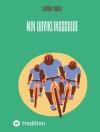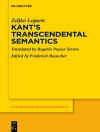In September 2007, more than 100 philosophers came to Prague with the determination to approach Karl Popper’s philosophy as a source of inspiration in many areas of our intellectual endeavor. This volume is a result of that effort. Topics cover Popper’s views on rationality, scientific methodology, the evolution of knowledge and democracy; and since Popper’s philosophy has always had a strong interdisciplinary influence, part of the volume discusses the impact of his ideas in such areas as education, economics, psychology, biology, or ethics.
The concept of falsification, the problem of demarcation, the ban on induction, or the role of the empirical basis, along with the provocative parallels between historicism, holism and totalitarianism, have always caused controversies. The aim of this volume is not to smooth them but show them as a challenge. In this time when the traditional role of reason in the Western thought is being undermined, Popper’s non-foundationist model ofreason brings the Enlightenment message into a new perspective. Popper believed that the open society was vulnerable, due precisely to its tolerance of otherness. This is a matter of great urgency in the modern world, as cultures based on different values gain prominence. The processes related to the extending of the EU, or the increasing economic globalization also raise questions about openness and democracy. The volume’s aim is to show the vitality of critical rationalism in addressing and responding to the problems of this time and this world.
Tabella dei contenuti
Reason, Logic, Science.- Experience and Perceptual Belief.- Critical Rationalism and the Principle of Sufficient Reason.- Ratio Negativa — The Popperian Challenge.- “Why, and to What Extent, May a False Hypothesis Yield the Truth?”.- Proof Versus Sound Inference.- A Problem for Popper’s Fallibilism.- Why Advocate Pancritical Rationalism?.- Karl Popper and Hans Albert — The Broad Scope of Critical Rationalism.- Epistemology, Methodology, Evolution.- Problem-Solving and the Problem of Induction.- Popper’s Fundamental Misdiagnosis of the Scientific Defects of Freudian Psychoanalysis.- Popper on Refutability: Some Philosophical and Historical Questions.- Popper’s Thesis of the Unity of Scientific Method: Method Versus Techniques.- Popper’s Analysis of the Problems of Induction and Demarcation and Mises’ Justification of the Theoretical Social Sciences.- Popper’s Theory of the Searchlight: A Historical Assessment of Its Significance.- From Group Selection to Ecological Niches.- Society, Politics.- Popperian Individualism Today.- Popper’s Continuing Relevance.- Open Society and the European Union.- Open Rationality: Making Guesses About Nature, Society and Justice.- Logic and The Open Society: Revising the Place of Tarski’s Theory of Truth Within Popper’s Political Philosophy.- Popper and Communitarianism: Justification and Criticism of Moral Standards.- Popper’s Communitarianism.- Re-examination of Popper’s Portrayal of Socrates.- Ethics, Economics, Education.- The Moral Underpinnings of Popper’s Philosophy.- Critical Rationalism and Ethics.- Popper’s Insights into the State of Economics.- Popper and Sen on Rationality and Economics: Two (Independent) Wrong Turns Can Be Remedied with the Same Program.- Popperian Selectionism and Its Implications for Education, or ‘What To Do About the Myth of Learning by Instruction from Without?’.- Applying Popperian Didactics.- The Difficulties with Popper’s Nontraditional Conception of Metaphysics.- Out of Error: Further Essays on Critical Rationalism.












